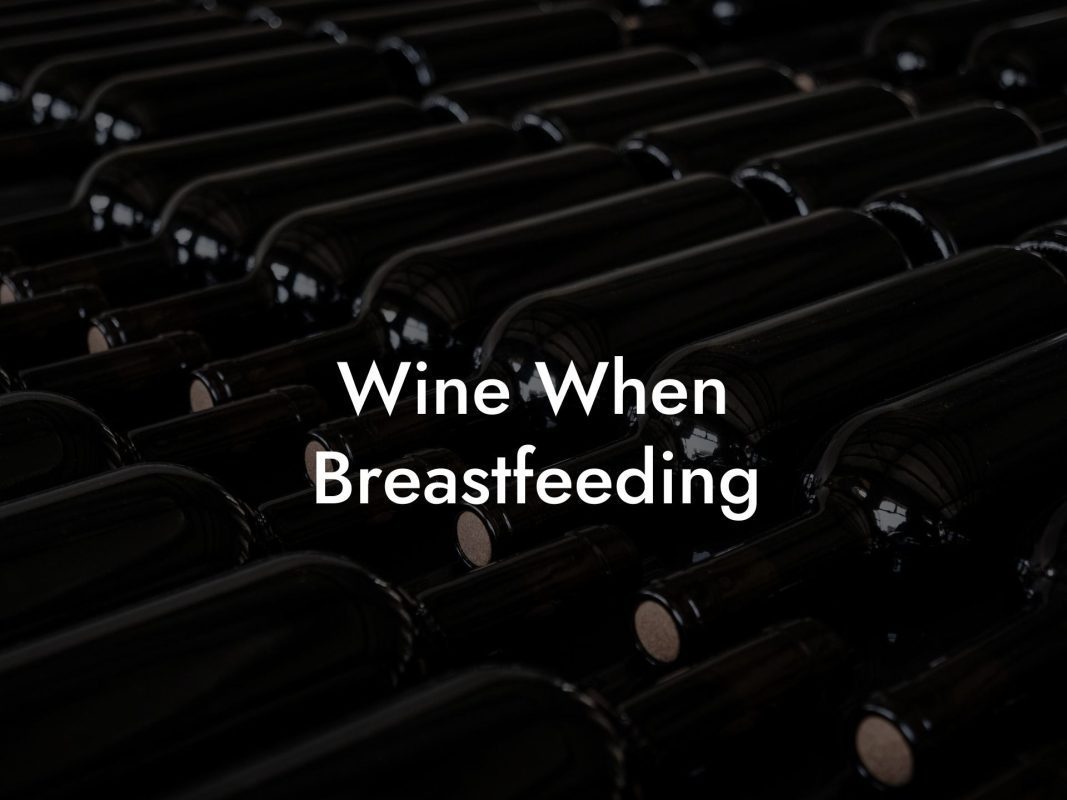Have you ever wondered how wine can be made from something as juicy and refreshing as watermelons? Welcome to the world of fruit wines! Watermelon wine, in particular, is a delightfully eccentric creation that offers a tasty twist on traditional grape-based wines. In this fun and informative guide, we'll take you through the process of making watermelon wine right in your own home.
Selecting Your Watermelon
Start by picking the perfect watermelon as the main ingredient for your wine. You'll want a ripe and sweet fruit, which will provide the best flavor and natural sugars needed for fermentation. Look for a watermelon with a uniform shape, free from any bumps or flat sides. The exterior should be dull and matte, with a deep green color and uniform texture. A ripe watermelon should feel slightly heavy for its size, due to the water content inside.
- Avoid: Overripe fruits with soft spots or splits, these can cause off-flavors in your final product
- Pro-tip: When tapping the watermelon, it should produce a deep, hollow sound indicating ripeness
Preparing the Watermelon Wine Must
Once you have selected your watermelon, it's time to turn it into wine must – the mixture that will eventually transform into wine. Follow these steps:
Do You Want to Win a Free Bottle of Wine?
Don't miss out on the opportunity to win a free bottle of wine every week.
Enter our weekly prize draw today!
- Cut the watermelon into small chunks, removing the rind and any seeds
- Measure out your desired volume of watermelon chunks (typically 8-10 lbs. is ideal for a one-gallon batch of wine)
- Mash or blend the watermelon flesh to release the juice and natural sugars
- Combine the crushed watermelon juice, sugar, and water in a large, sanitized container. Add enough sugar to achieve a specific gravity of around 1.090 (use a hydrometer)
- Add pectic enzyme and acid blend to help achieve the proper balance of acidity and improve the wine's clarity
- Cover the container and let the must sit for 24 hours at room temperature
Fermenting Your Watermelon Wine
After the must has rested for 24 hours, it's time to move on to fermentation:
- Activate the wine yeast by following the instructions on the packet and add it to the must
- Stir the mixture well to incorporate the yeast, then cover the container with a cloth or airlock to allow gases to escape while keeping potential contaminants out
- Ferment the must at a consistent room temperature (ideally around 70°F) for 7-10 days, stirring daily to ensure proper yeast activity
- Once fermentation has slowed down (bubbles are less frequent), rack (siphon) the wine into a secondary fermentation vessel, leaving behind any solids and sediment
- Attach an airlock to the secondary fermenter and let the wine continue fermenting for 4-6 weeks
Clarifying and Bottling Your Watermelon Wine
Once fermentation is complete, it's time for the final steps before enjoying your homemade watermelon wine:
- Rack the wine once more into a clean container to separate it from any sediment
- Optionally, add a fining agent like bentonite or Sparkolloid to help clarify the wine
- Let the wine sit for 1-2 weeks to allow any remaining sediment to sink to the bottom
- Rack the wine into sanitized bottles and cork them tightly
- Aging is recommended, ideally for at least 3-6 months, as it will develop more complex flavors and enhance the overall quality of your watermelon wine
How To Make Watermellon Wine Frequently Asked Questions
What Makes Watermelon a Good Fruit for Wine Making?
Watermelons are excellent for wine-making due to their high water content and fructose, which are essential for fermentation. They impart a unique, sweet flavor profile that is surprisingly refreshing, making watermelon wine a delightful summertime beverage.
Is Homemade Watermelon Wine Safe to Drink?
Absolutely, as long as you follow proper sanitization protocols for your equipment and ingredients. This practice ensures the fermentation process occurs as needed, without the interference of unwanted bacteria or wild yeasts that could spoil your wine.
How Long Does It Take to Make Watermelon Wine?
The initial fermentation process for watermelon wine typically takes one to two weeks. However, for the wine to fully develop its flavors and character, expect a further aging period of several months to a year.
What Equipment Do I Need to Start Making Watermelon Wine?
You'll need several pieces of equipment, including a fermentation bucket, a secondary fermenter like a glass carboy, airlock, siphon tubing, bottles, corks, and a corker. Additionally, sanitizing all equipment is crucial to prevent contamination.
How Much Watermelon Will I Need?
Generally, you'll need around 10-15 pounds (4.5-6.8 kg) of watermelon to make one gallon (3.79 liters) of wine. This amount can vary depending on the watermelon's water content and your desired wine concentration.
Can I Use Any Type of Watermelon?
Yes, you can use any variety, but the sweeter the watermelon, the more flavorful the wine. Traditional red-fleshed watermelons are commonly used, but don't shy away from trying different varieties like yellow or orange watermelons for a unique twist.
Do I Need to Add Sugar to the Mix?
Watermelon is naturally sweet but doesn't usually contain enough sugar to reach the desired alcohol content. Most recipes recommend adding sugar to aid the fermentation process and strengthen the wine.
What Type of Yeast Should I Use for Watermelon Wine?
Wine yeast is preferable, and for fruity wines like watermelon, Montrachet or Champagne yeast varieties are popular choices. They help preserve the fruit's natural flavors while ensuring a vigorous fermentation.
Is There a Specific Temperature for Fermenting Watermelon Wine?
The ideal temperature range for fermenting watermelon wine is between 70 and 75 degrees Fahrenheit (21-24 degrees Celsius). Maintaining this temperature helps promote healthy yeast activity and prevents the formation of unwanted flavors.
How Will I Know if the Fermentation Process is Working?
You'll know fermentation is underway when you see bubbles forming and hear a gentle fizzing sound from the airlock. This activity indicates that yeast is converting sugar into alcohol and carbon dioxide.
What Should I Do if There's No Sign of Fermentation?
First, ensure your equipment is sanitized and the room is warm enough. If there's still no activity, there might be an issue with the yeast. Try re-pitching with a new batch of yeast, preferably from a fresh packet.
Can I Add Other Fruits to Watermelon Wine?
Absolutely! Watermelon pairs well with many fruits like strawberries, blueberries, or peaches. Adding other fruits can create a more complex flavor profile and enhance the overall depth of your homemade wine.
How Can I Sweeten My Watermelon Wine?
If you prefer a sweeter wine, you can back-sweeten it after fermentation has completed. This process involves adding a sweetener like sugar, honey, or a wine conditioner, ensuring you've stabilized the wine to prevent further fermentation.
How Do I Clear My Watermelon Wine?
After primary fermentation, transferring your wine to a secondary fermenter and letting it rest for several weeks allows particles to settle, clarifying your wine. For further clarity and brightness, consider using a fining agent like bentonite.
Can I Taste My Wine During Fermentation?
Yes, tasting your wine during the process allows you to understand the evolution of flavors and adjust accordingly. However, remember that the taste will significantly improve with proper aging after fermentation is complete.
How Long Will Watermelon Wine Last?
Homemade watermelon wine, when stored properly, can last several years. However, it’s often enjoyed within a year of production when its unique fruity qualities are most vibrant.
What Should I Be Aware of When Bottling?
Sanitize all bottles and corks thoroughly. Ensure the wine has completed fermenting, as bottling too soon can lead to built-up carbon dioxide, causing pressure and potentially exploding bottles.
Do I Need Special Bottles or Corks?
While specific wine bottles and corks are recommended, they aren't mandatory. Any clean, glass bottle will do. If using traditional wine bottles, ensure you have the appropriate corks and a corker device.
How Should I Store My Bottled Watermelon Wine?
Store your wine bottles on their sides to keep the corks moist, in a cool, dark place. This position prevents the corks from drying out and minimizes oxidation, which can spoil the wine.
Can Homemade Watermelon Wine Be a Good Gift?
Definitely! A bottle of homemade watermelon wine makes for a thoughtful and unique gift, showcasing your effort and passion for wine-making. Consider adding a personalized label for an extra special touch.
How To Make Watermellon Wine Example
Imagine sipping on a refreshing glass of watermelon wine while relaxing on a warm summer day – you can now make this a reality with your very own homemade batch. By following the guidelines provided, you'll be able to create a unique, flavorful, and enjoyable beverage that showcases the natural sweetness of watermelons and stands out amongst traditional wines.
Congratulations! You now know the art of making watermelon wine, and we can't wait for you to amaze friends and family with this fruity delight. As you share your watermelon wine, don't forget to let others in on the fun by inviting them to join the Black Wine Club community. Our website is filled with more engaging guides and articles to help you expand your knowledge of wine and unique recipes. Cheers to your newfound watermelon wine-making skills!
Do You Want to Win a Free Bottle of Wine?
Don't miss out on the opportunity to win a free bottle of wine every week.
Enter our weekly prize draw today!












